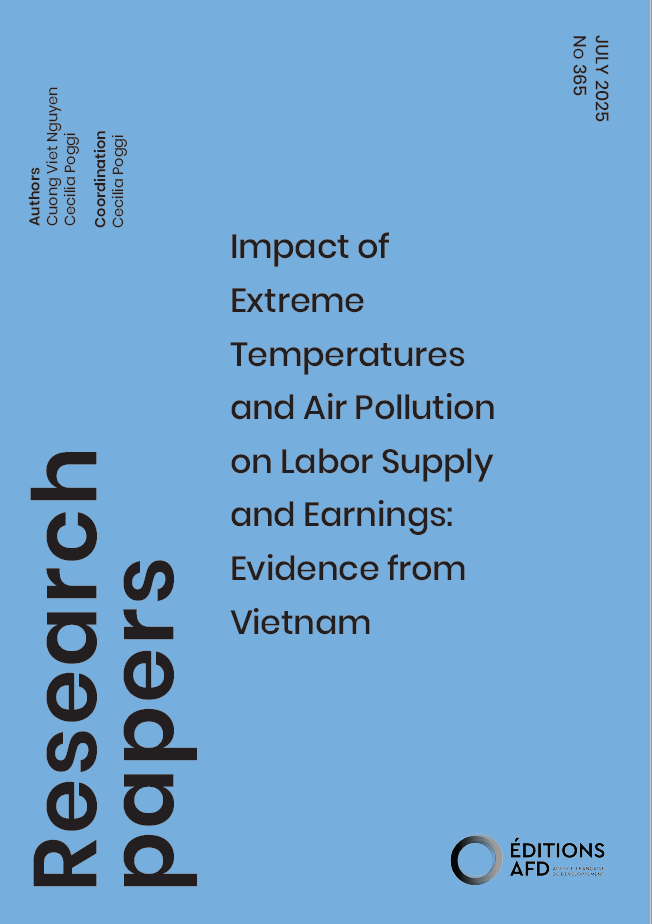Share the page
The Impact of Extreme Temperatures and Air Pollution on Labor Supply and Earnings: Evidence from Vietnam
Published on

This study examines the impact of extreme temperatures and air pollution on employment in Vietnam. While we do not find significant effects of extreme temperatures or air pollution on labor force participation, we observe small but significant effects on working hours and earnings. An additional day with a mean temperature below the 5th percentile increases weekly working hours by 1.07%. Conversely, an additional day in a month with a mean temperature above the 95th percentile of the temperature distribution, compared to a day within the 5th–95th percentile range, reduces weekly working hours by 0.45% and monthly earnings by 0.71%. Air pollution has a more substantial negative impact on both working hours and earnings. When the concentration of PM2.5 increases by 1 µg/m³ over a month, it reduces weekly working hours by 1.2% and monthly earnings by 1.7%. Importantly, we find that self-employed workers are less affected by extreme temperatures and air pollution in terms of both working hours and earnings. A possible explanation is that they have greater autonomy to adjust their work schedules in response to environmental shocks. The impacts are also more pronounced among younger, skilled, and urban workers compared to older, unskilled, and rural workers. Possibly these workers are more likely to be employed in wage jobs and, compared with the self-employed, have less flexibility to adjust their work schedules in response to environmental shocks, making their total working hours more sensitive to such conditions.
Useful Information
-
Authors
-
Cuong Viet Nguyen, Cecilia Poggi
-
Coordinators
-
Edition
-
365
-
Page number
-
89
-
ISSN
-
2492 - 2846
-
Collection
-
Research Papers
-
Languages
-
English
